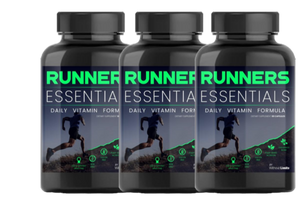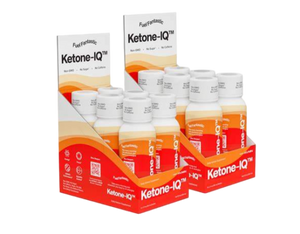Tart Cherry
|
A study to determine the efficacy of tart cherry juice in aiding recovery and reducing muscle damage, inflammation, and oxidative stress. Conclusion: Tart Cherry aids recovery following strenuous exercise by increasing total anti-oxidative capacity, reducing inflammation and lipid peroxidation, and promoting recovery of muscle function. A study to assess the effects of tart cherry compared to placebo on pain among runners in a long distance relay race.Conclusion: Administration of tart cherry juice reduced symptoms of exercise-induced muscle pain among runners participating in a vigorous endurance event. A study to investigate the effects of supplementation with tart cherry on markers of recovery after intermittent exercise under habitual dietary conditions. Conclusion: Countermovement jump, 20-m sprint and maximal voluntary isometric contraction showed significantly faster recovery with tart cherry, suggesting tart cherry can accelerate recovery after intermittent exercise. |
Ashwagandha (Withania somnifera)
|
A study to examine the effects of ashwagandha root extract consumption on muscle mass and strength in healthy young men engaged in resistance training. Conclusion: Compared to placebo, the subjects receiving ashwagandha had significantly greater reduction of exercise-induced muscle damage as indicated by the stabilization of serum creatine kinase. A study to examine the impact of Sensoril® (ashwagandha) supplementation on strength training adaptations. Conclusions: Subjects who supplemented with ashwagandha demonstrated significant improvements in perceived recovery scores, while no such change was observed in the placebo group. These changes are consistent with previous work, indicating that ashwagandha may help to improve soreness, stress, and anxiety. A prospective, double-blind, randomized, placebo-controlled study to evaluate the efficacy of Ashwagandha root extract in enhancing cardiorespiratory endurance and improving the quality of life (QOL) in 50 healthy male/female athletic adults. Conclusion: Ashwagandha root extract enhances the cardiorespiratory endurance and improves QOL in healthy athletic adults. |
L-Glutamine
|
A study to evaluate effects of 7 day glutamine supplementation on exercise-induced oxidative stress and muscle damage. Conclusion: L-Glutamine supplementation reduces oxidative stress and muscle damage markers. A study to examine the effects of L-glutamine supplementation on quadriceps muscle strength and soreness ratings following eccentric exercise. Conclusion: L-glutamine supplementation resulted in faster recovery of peak torque and diminished muscle soreness following eccentric exercise. A review of the main anti-fatigue properties of glutamine and the effects of this amino acid supplementation. Conclusion: Glutamine supplementation increases muscle glycogen synthesis, reduces ammonia accumulation, and attenuates markers of muscle damage, especially for athletes who practice exhaustive and prolonged exercises. |
L-Theanine
|
A study to analyze the response of selected components of the immune system in rowers to maximal physical exercise, and to verify if this response could be modulated by supplementation with L-Theanine. Conclusion: Supplementation with L- Theanine seems to exert a beneficial effect on a disrupted Th1/Th2 balance in elite athletes. An investigation to determine whether the acute ingestion of a supplement containing caffeine, theanine and tyrosine improves mental and physical performance in athletes. Conclusion: Results suggest that a combination of a low-dose of caffeine with theanine and tyrosine may improve athletes’ movement accuracy surrounding bouts of exhaustive exercise without altering subjective mental states. A study to determine if cystine/theanine has an immune reinforcement effect in athletes. Conclusions: The ingestion of CT contributed to suppressing the change in inflammatory response, prevented a decrease in the immune function, and prevented infection and reduced symptoms when infected associated with continuous intense exercise. |
Alpha GPC
|
A study to investigate acute physiologic responses to a single intake of GPC. Conclusion: A single dose of GPC increases growth hormone secretion and hepatic fat oxidation, with concomitant increases in choline levels, in young adults. |
Protein and Carbohydrates
|
The International Society of Sports Nutrition provides an objective and critical review regarding the timing of macro-nutrients in reference to healthy, exercising adults and in particular highly trained individuals on exercise performance and body composition. Conclusion: Post-exercise (within 30 minutes) consumption of carbohydrates at high dosages has been shown to stimulate muscle glycogen re-synthesis, while adding protein at a carbohydrate to protein ratio of 3 – 4 to 1 may further enhance glycogen re-synthesis. Post-exercise ingestion of amino acids, primarily essential amino acids, has been shown to stimulate robust increases in muscle protein synthesis. Dietary carbohydrate and protein provide the requisite substrates to enhance glycogen re-synthesis and remodeling of skeletal muscle proteins, respectively, both of which would be important to rapidly restore muscle function and performance. Conclusion: Endurance athletes aiming to maximize post exercise recovery to maintain or enhance subsequent exercise performance should target a nutrition strategy that features optimal ingestion of both carbohydrate and protein. A study to determine the estimated average protein requirement and recommended protein intake in endurance athletes during an acute 3 day controlled training period using the indicator amino acid oxidation method. Conclusion: Results suggest that the metabolic demand for protein in endurance-trained adults on a higher volume training day is greater. |
Branched Chain Amino Acids (BCAA) and Leucine
|
A study to examine the effects of branched-chain amino acid (BCAA) supplementation on serum indicators of muscle damage after prolonged exercise. Conclusion: Results indicate that supplementary BCAA decreased serum concentrations of the intramuscular enzymes CK and LDH following prolonged exercise. This observation suggests that BCAA supplementation may reduce the muscle damage associated with endurance exercise. Amino acids and more precisely, branched-chain amino acids (BCAAs), are usually consumed as nutritional supplements by many athletes and people involved in regular and moderate physical activities regardless of their practice level. BCAAs have been initially shown to increase muscle mass and have also been implicated in the limitation of structural and metabolic alterations associated with exercise damage. Conclusion: BCAAs supplementation can be efficacious on outcomes of exercise-induced muscle damage. |


